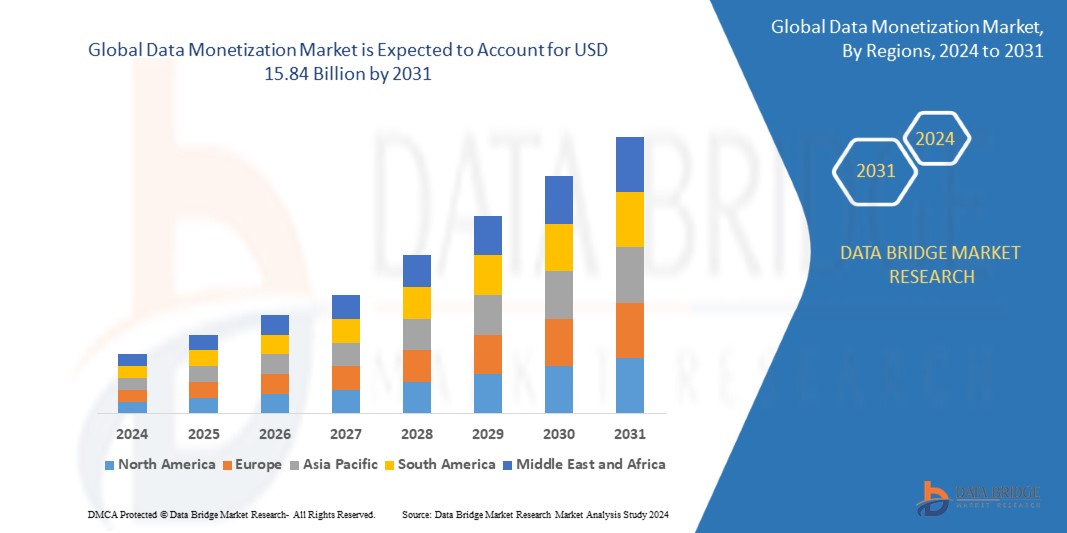Introduction
In today’s data-driven world, companies hold an incredible volume of data that can be leveraged as a valuable asset. Data monetization, the process of generating revenue from data, offers promising opportunities for businesses across various sectors. By effectively analyzing, packaging, and sharing data, companies can develop new revenue streams, enhance customer experiences, and improve decision-making processes. However, data monetization comes with its own set of challenges, particularly in the areas of privacy, security, and compliance. This article will explore these key challenges and provide strategies for overcoming them to enable responsible, compliant, and secure data monetization.
Definition
The process of obtaining financial value from data assets is known as data monetization. Selling unprocessed data, offering insights via data analysis, or leveraging data to enhance goods and services are all part of it. Organizations may boost operational effectiveness, generate new revenue streams, and improve customer experiences by utilizing their data, which will ultimately spur growth and give them a competitive advantage in the marketplace.
Understanding Data Monetization
Data monetization goes beyond simply selling raw data. It involves transforming data into insights, products, or services that deliver value. Organizations might leverage internal data to optimize operations, personalize customer experiences, or create data-driven products, or they may exchange anonymized datasets with other businesses. To effectively monetize data, companies must establish robust data management practices, and more importantly, ensure that the data is managed in ways that uphold privacy, security, and compliance.
Challenges in Data Monetization
Ensuring Privacy
Privacy is a primary concern in data monetization, especially with increasing regulations like the General Data Protection Regulation (GDPR) in the European Union, the California Consumer Privacy Act (CCPA), and other global data protection laws. These regulations enforce stringent requirements on how companies handle, share, and monetize data. Failing to comply can lead to severe penalties, reputational damage, and a loss of customer trust.
Strategies to Overcome Privacy Challenges
- Data Anonymization and De-identification
Anonymization involves stripping away or modifying personal identifiers so individuals cannot be identified from the data. Techniques such as pseudonymization, k-anonymity, and data masking are often used to help achieve this. Properly anonymized data can mitigate privacy risks while retaining value for analysis and monetization. - Privacy by Design
Integrating privacy protections from the outset of any data-driven project is crucial. This approach, often called “Privacy by Design,” encourages companies to consider privacy implications early on and bake privacy features into the architecture of their data systems. This includes measures like granular data access controls, encryption, and clear privacy notices to end-users. - Consent Management
Seeking explicit consent from users before collecting or sharing their data builds trust and ensures compliance with privacy regulations. Consent management platforms (CMPs) help companies collect, store, and manage user consents in an auditable manner, offering transparency to users and mitigating legal risks. - Implementing Differential Privacy
Differential privacy techniques add “noise” to datasets, masking individual data points while retaining aggregate insights. This approach is particularly effective for organizations seeking to monetize data by offering insights or analytical services without exposing sensitive information.
Ensuring Security
Data security is a cornerstone of any monetization effort. When companies engage in data monetization, they increase their exposure to potential security threats, including data breaches, cyberattacks, and insider threats. Cybersecurity is essential not only to protect against external attacks but also to guard against unauthorized access and misuse of data within the organization.
Strategies to Overcome Security Challenges
- Data Encryption
Encryption is critical to safeguarding data both at rest (stored data) and in transit (data being transferred between systems). Encrypting data with strong, regularly updated encryption protocols ensures that sensitive information remains protected even if a security breach occurs. - Access Control and Identity Management
Companies should enforce strict access controls, ensuring only authorized personnel have access to sensitive data. Role-based access control (RBAC) and identity and access management (IAM) systems help maintain these permissions, reducing the risk of unauthorized access and enhancing overall data security. - Data Minimization and Retention Policies
Reducing the volume of stored data and establishing clear retention periods can limit the risk of exposure. By only keeping essential data for as long as necessary, companies can minimize the potential fallout from any security incidents. Additionally, secure data disposal practices are crucial for ensuring data is completely erased from storage systems when it is no longer needed. - Continuous Monitoring and Threat Detection
Implementing continuous monitoring solutions helps organizations quickly detect suspicious activities. These solutions include intrusion detection systems (IDS), network monitoring tools, and Security Information and Event Management (SIEM) systems that provide real-time alerts on possible threats. Proactive threat detection can prevent security incidents before they escalate. - Regular Security Audits and Penetration Testing
Periodic security audits and penetration testing allow companies to identify vulnerabilities in their systems and take corrective action. By simulating potential attacks, organizations can test the effectiveness of their defenses and strengthen them against evolving cyber threats.
Meeting Compliance Standards
Compliance with industry regulations and standards is essential for successful data monetization. Non-compliance can lead to hefty fines and erode trust among customers, partners, and regulatory bodies. Additionally, different regions and sectors have varying compliance requirements, making it challenging for global organizations to remain compliant.
Strategies to Overcome Compliance Challenges
- Understanding Relevant Regulations
Companies must first gain a comprehensive understanding of the regulations relevant to their industry and operating regions. Common regulations include GDPR, CCPA, the Health Insurance Portability and Accountability Act (HIPAA), and the Federal Trade Commission (FTC) guidelines. Understanding and tracking compliance requirements can guide companies in designing policies and practices to avoid legal repercussions. - Data Governance Frameworks
A robust data governance framework provides the necessary structure to maintain regulatory compliance. This framework should encompass data management policies, standardized practices for data handling, and regular compliance checks. Effective data governance ensures accountability, transparency, and auditability within data monetization processes. - Implementing Data Audits and Compliance Reviews
Regular compliance reviews help companies verify that their data practices align with regulatory requirements. Data audits can identify areas where compliance may be lacking and highlight opportunities to strengthen compliance practices. Additionally, third-party audits can lend credibility and assurance to stakeholders, building trust in the organization’s commitment to compliance. - Employee Training and Awareness Programs
Employees play a vital role in ensuring compliance with data regulations. Regular training programs on data privacy, security protocols, and compliance requirements empower employees to handle data responsibly. An informed workforce can significantly reduce the likelihood of accidental compliance violations and enhance overall data protection. - Automated Compliance Management Tools
Many organizations are turning to automated compliance management tools to streamline and simplify the compliance process. These tools can track regulatory updates, manage data privacy policies, and document compliance activities in real time. Automation not only enhances efficiency but also reduces human error, making it easier to maintain regulatory standards across the organization.
Balancing Profitability with Responsibility
While data monetization offers considerable profit potential, it is vital for companies to prioritize privacy, security, and compliance. Failing to do so can lead to catastrophic consequences, from costly fines and legal battles to loss of reputation and consumer trust. By focusing on responsible data practices, organizations can create sustainable monetization strategies that benefit both the company and its stakeholders.
For companies embarking on data monetization journeys, here are some additional best practices:
- Transparency with Stakeholders
Companies should be transparent about their data usage and monetization strategies. Clearly communicating how data will be used and protected can build customer trust and support. - Establishing an Ethical Framework for Data Use
An ethical framework for data use ensures that data monetization aligns with broader corporate values and social responsibilities. This framework can guide decision-making processes, helping organizations avoid practices that may be legal but ethically questionable. - Partnering with Reputable Third-Party Vendors
When sharing data with third-party vendors, it’s crucial to partner with those who share the same commitment to privacy, security, and compliance. Due diligence and vendor assessments can prevent data leakage or mismanagement and ensure that data remains protected throughout its lifecycle.
Growth Rate of Data Monetization Market
The global Data Monetization market is expected to grow at a compound annual growth rate (CAGR) of 21.95% from 2024 to 2031, from its 2023 valuation of USD 3.24 billion to USD 15.84 billion.
Learn More: https://www.databridgemarketresearch.com/reports/global-data-monetization-market
Conclusion
Data monetization presents lucrative opportunities but requires a meticulous approach to privacy, security, and compliance. Companies must prioritize these pillars to mitigate risks and foster a trustworthy environment for data monetization. By implementing robust privacy protocols, enforcing security measures, and maintaining regulatory compliance, organizations can responsibly harness data to drive revenue, fuel innovation, and create value for all stakeholders.



